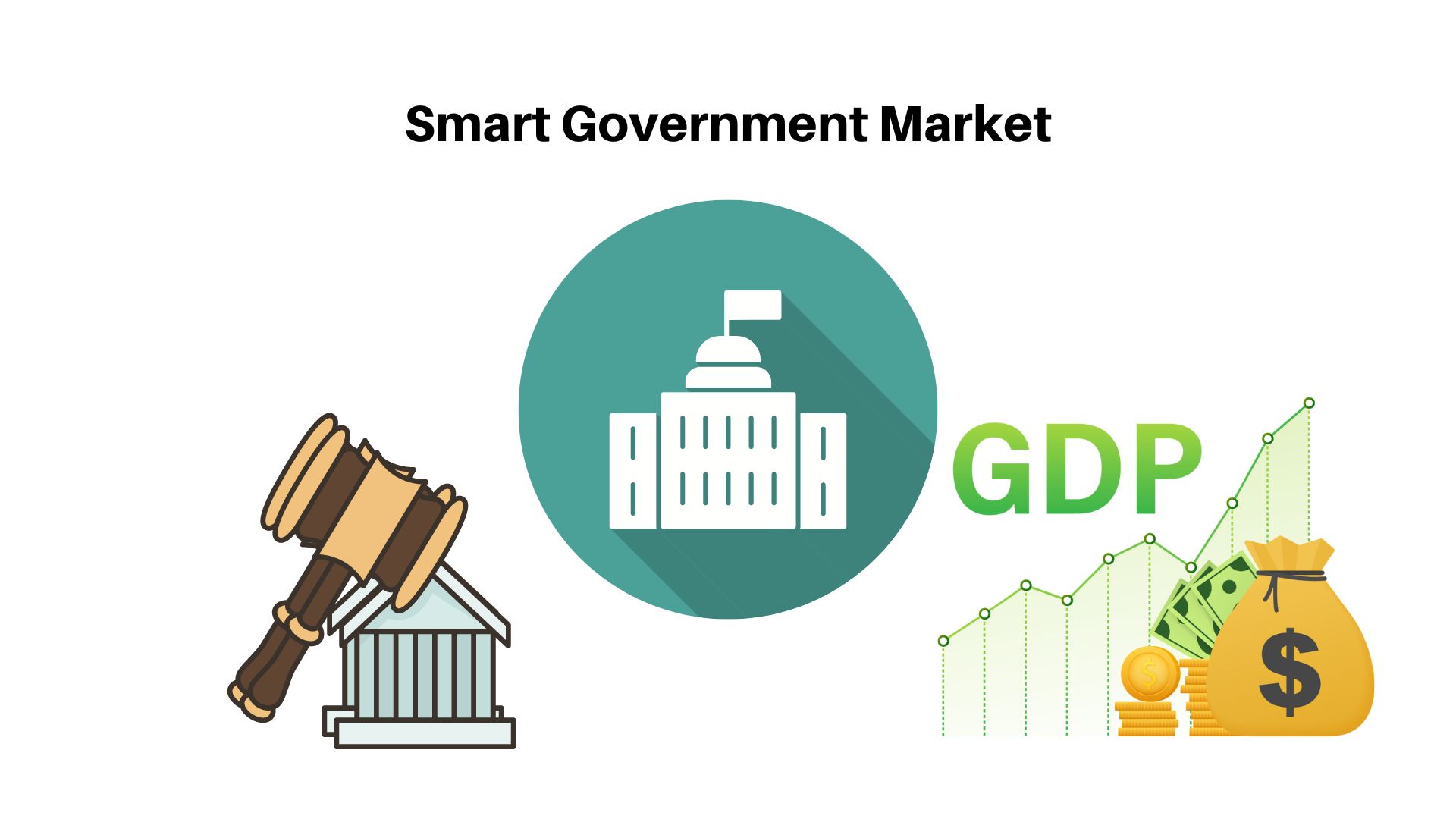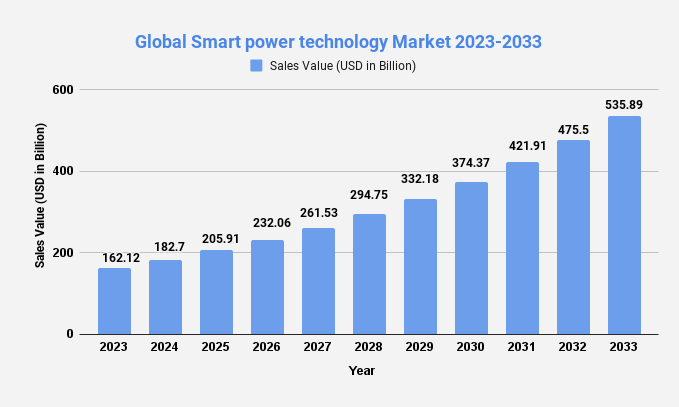Smart Government Market size reached USD 160.04 Billion in 2033, growing at a CAGR of 21.2%

Page Contents
Market Overview
Published Via 11Press: Smart government, also recognized as e-government or digital government, is the use of digital technologies and tools by using authorities agencies to improve their services, streamline their operations, and beautify their interaction with citizens and businesses.
The final purpose of a smart government market is to create a more efficient, obvious, and responsive government that is better equipped to meet the needs of its constituents. To achieve this goal, governments around the world are implementing an extensive variety of digital applied sciences such as cloud computing, big data analytics, synthetic intelligence, and the Internet of Things (IoT).
Global smart government market is valued at USD 23.4 billion in 2023 and is projected to reach USD 160.04 billion by 2033, growing at a CAGR of 21.2% from 2023 to 2033.
Smart government can help reduce the costs associated with government operations and service delivery. Digital technologies can help protect government data and infrastructure, reducing the risk of cyber-attacks and other security threats.

Key Takeaways
- Smart government can facilitate higher conversation and engagement between the government and citizens. Through digital systems and data-based decision-making processes, residents can take part more actively in government decision-making.
- Smart authorities can improve the delivery of public offerings such as healthcare, education, transportation, and public safety. Using technological know-how and data, governments can optimize service delivery, minimize expenses and make bigger accessibility.
- Smart government can improve the effectiveness of authorities' operations via automating processes, decreasing bureaucracy and streamlining workflows. This can lead to price savings and greater advantageous use of government resources.
- Smart government can facilitate data-driven decision-making with the aid of presenting governments with real-time data and insights. It can assist governments to become aware of trends, prevision troubles, and make greater knowledgeable decisions.
- Smart government can make bigger transparency and accountability with the aid of making government operations extra open and accessible. By leveraging science to provide real-time statistics and reporting, governments can expand public belief and self-assurance in their operations.
Sample Pages of This Report- https://marketresearch.biz/report/smart-government-market/request-sample/
Regional Snapshot
- Europe: The European Union is at the forefront of smart government initiatives. The EU has launched a number of programs and initiatives aimed at promoting the use of digital technologies in government operations. A notable example is the Digital Single Market initiative, which aims to create a unified digital market across EU member states.
- North America: In the United States, the Smart City Challenge was launched in 2015 by the Department of Transportation, challenging cities to develop innovative solutions to transportation challenges. The winning city, Columbus, Ohio, received $40 million in funding to implement its smart city plan. In Canada, the Smart Cities Challenge was launched in 2017, inviting cities to submit proposals for smart city projects with prizes ranging from $5 million to $50 million.
- Asia: Singapore is often considered a leader in smart government initiatives. The city-state has launched several programs aimed at using technology to improve the delivery of public services, including a one-stop digital portal for government services and the Smart Nation initiative aimed at making the country a global hub for technology and innovation.
- Middle East: The United Arab Emirates (UAE) is investing notably in clever authorities initiatives. The UAE authorities have launched a number of packages aimed at using science to enhance public services, along with the Smart Government Portal that gives residents with get admission to extra than 4,000 government services.
- Africa: Rwanda is making enormous growth in smart authorities initiatives. The u . s . has launched numerous applications aimed at the usage of technological know-how to improve public services, together with a one-stop e-government portal that offers residents with get right of entry to to greater than eighty authorities services. In addition, Rwanda is investing closely in clever city infrastructure, with plans to construct a clever metropolis from scratch in the capital city of Kigali.
Place An Inquiry Before Purchase: https://marketresearch.biz/report/smart-government-market/#inquiry
Drivers
- Digital Transformation- Governments want to embrace digital transformation to improve carrier delivery and streamline operations. This consists of digitizing documents, automating approaches and using data analytics to gain insights into citizen needs and behaviors.
- Open data- Governments can leverage the power of open data to make information extra on hand to citizens, companies, and different stakeholders. This includes making statistics reachable in machine-readable formats, growing statistics portals, and advertising the use of open statistics standards.
- Citizen Engagement- Smart governments prioritize citizen engagement and use technology to facilitate two-way communication. These encompass online surveys, social media and mobile apps that enable citizens to provide feedback and interact with their government.
- Collaborative Partnerships- Smart governments collaborate with other authorities agencies, non-public area partners, and community corporations to reap common goals. This includes sharing facts and resources, constructing solutions, and leveraging the information of a variety of stakeholders.
- Agile Processes- Smart governments use agile methods to respond rapidly to changing desires and demands. This includes adopting agile techniques for software program development, assignment management, and service delivery.
- Strong Cyber Security- As governments increasingly remember on digital technology, it is necessary to have sturdy cyber security measures to shield sensitive records and forestall cyber attacks. This includes imposing sturdy encryption, using an invulnerable network, and coaching personnel on cybersecurity first-class practices.
Restraints
- Governments can use information analytics to analyze patterns and predict manageable risks, such as the spread of diseases, crime hotspots or traffic congestion. This permits governments to take preventive measures to limit the chance of such incidents.
- Governments can additionally set up early warning systems that use real-time data to detect practicable threats such as herbal disasters or cyber-attacks. These systems can trigger computerized alerts to the worried authorities, enabling them to take speedy action. Governments can use technology to launch public training campaigns to create focus about doable threats and motivate citizens to take preventive measures. This may also consist of the usage of social media, cellular apps or other digital systems to disseminate facts and promote protection measures.
- Governments can utilize surveillance technologies such as CCTV cameras or drones to monitor public spaces and detect potential threats like criminal activity or traffic accidents. This enables authorities to act swiftly and prevent more serious incidents from taking place. Governments can promote data sharing among different agencies to promote better coordination and more efficient preventive measures. For instance, sharing information between health and transportation departments could help identify potential disease outbreaks and take steps to prevent their spread.
Purchase “Smart Government Market” Complete Report Here– Buy the report!
Opportunities
- Smart government is the application of technology and data-driven approaches to improve government operations, service delivery and engagement with citizens. Through digital technology, governments can streamline their processes and offer more efficient services to their constituents. This involves digitizing paper-based processes, creating online portals and using data analytics to make informed decisions.
- IoT allows governments to collect data on everything from traffic patterns to air quality – which can then be used for improving services and making strategic decisions.
- Smart infrastructure includes technologies such as smart grids, connected transportation systems and water management systems which governments can utilize to reduce costs, boost efficiency levels and provide citizens with improved services.
Challenges
- Smart governments need to collect and store sensitive data from citizens, who can be potential targets of cyber attacks. Therefore, it is very important to implement strong security measures and protect data privacy. The use of technology in government services can create a digital divide where those who are not comfortable using technology or do not have access to it are left behind.
- Governments must ensure that all citizens have equal access to government services regardless of their technical ability or geographic location. Implementing smart government requires a strong technological infrastructure, which can be challenging and expensive to set up.
- Governments must ensure that they have the necessary resources and expertise to implement and maintain such infrastructure. The implementation of new technologies and processes may face resistance from government officials, citizens or stakeholders who are comfortable with the status quo.
- Governments need to communicate the benefits of new technologies and processes to gain support from all stakeholders.
Recent Developments
- Digital Transformation- Governments around the world are embracing digital transformation to streamline their services and make them more accessible to citizens.
- Open data- Governments are increasingly making their data available to the public, which can help citizens make more informed decisions and enable innovation by private sector companies.
- Blockchain- Some governments are experimenting with blockchain technological know-how to improve transparency, security and efficiency in their operations.
- Smart Cities- Many cities are adopting clever technologies to enhance offerings such as transportation, waste administration and strength efficiency.
Market Segmentation
Segmentation by service:
- Professional Services
- Managed Services
Segmentation with the aid of solution:
- Analytics
- Government Resource Planning System
- Security
- Remote Monitoring
- Network Management
- Open Data Platform
- Others
Segmentation by deployment mode:
- Professional Services
- Managed Services
Key Players
- Amazon Web Services, Inc.
- Avaya Inc.
- Capgemini SE
- Entrust Datacard Corporation
- Huawei Technologies Co., Ltd.
- International Business Machines Corporation
Imex Systems Inc. - OpenGov, Inc.
- Oracle Corporation
- Socrata, Inc.
Report Scope
| Report Attribute | Details |
| Market size value in 2023 | USD 23.4 billion |
| Revenue forecast by 2033 | USD 160.04 billion |
| Growth Rate | CAGR Of 21.2% |
| Regions Covered | North America, Europe, Asia Pacific, Latin America, and Middle East & Africa, and Rest of the World |
| Historical Years | 2017-2022 |
| Base Year | 2022 |
| Estimated Year | 2023 |
| Short-Term Projection Year | 2028 |
| Long-Term Projected Year | 2033 |
FAQ.
Smart authority's initiatives must be tailored to the needs of those they serve, which necessitates an intimate understanding of their wants, preferences, and expectations.
Smart authorities leverage technologies such as artificial intelligence, big data analytics and the Internet of Things (IoT) to automate and optimize government functions, enhance transparency and accountability levels, and drive innovation.
Just like any new initiative, clever authorities present both potential advantages and drawbacks; such as needing robust cyber security measures, privacy concerns, and potential biases in algorithms or decision-making processes.
Smart government initiatives must be integrated into existing governance structures and processes in order to be effective and sustainable, necessitating collaboration and coordination between government agencies, private sector partners and civil society organizations.
The team behind market.us, marketresearch.biz, market.biz and more. Our purpose is to keep our customers ahead of the game with regard to the markets. They may fluctuate up or down, but we will help you to stay ahead of the curve in these market fluctuations. Our consistent growth and ability to deliver in-depth analyses and market insight has engaged genuine market players. They have faith in us to offer the data and information they require to make balanced and decisive marketing decisions.